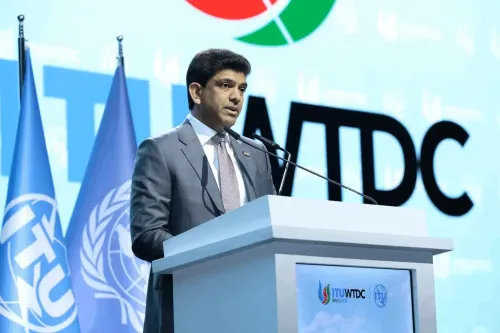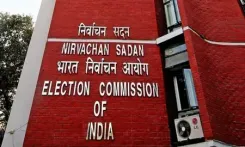Is the Online Gaming Bill Set to Revolutionize E-Sports and Curb Fraud?

Synopsis
Key Takeaways
- The Online Gaming Bill, 2025 aims to regulate online gaming and promote e-sports.
- It addresses issues of fraud, addiction, and money laundering.
- Stricter penalties for repeat offenses will be enforced under the new law.
- A National e-Sports Authority will be established for regulation.
- Clear definitions are essential for fostering a stable gaming environment.
New Delhi, Aug 20 (NationPress) The ‘Promotion and Regulation of Online Gaming Bill, 2025’ introduced on Wednesday has garnered positive feedback from industry experts and legal authorities, who characterize it as groundbreaking and extensive.
They assert that the legislation not only acknowledges e-sports as a new frontier in competitive sports but also tackles critical societal issues such as addiction, financial security, fraud, and money laundering.
Gaurav Sahay, the Founding Partner of Arthashastra Legal, remarked that the Bill is comprehensive in its approach as it encompasses the entire ecosystem—from service providers and facilitators to those endorsing these games.
He emphasized that the framework is designed to thwart fraud, money laundering, and funding of terrorism by banning all forms of real-money gaming, whether based on luck or skill.
Moreover, financial institutions, payment facilitators, and advertising networks are prohibited from endorsing such activities.
Sahay also pointed out the introduction of “aggravated liability” for repeated offenses, which stipulates stricter penalties, including imprisonment and substantial fines.
Additionally, the Bill accords recognition to e-sports as a legitimate sport and proposes the establishment of a National e-Sports Authority and a National Gaming Authority to regulate, classify, investigate, and shut down illegal platforms.
Industry leaders in the gaming realm applauded the government’s initiative to promote e-sports. Akshat Rathee, Co-founder and Managing Director of NODWIN Gaming, stated that while the step is promising, there is a pressing need for clear definitions to differentiate between e-sports, social gaming, and real-money gaming.
“Ambiguity in terminology has historically led to confusion among regulators, players, and investors. Clear definitions will foster a stable environment that boosts investor confidence and sustainable growth,” he stated.
Animesh “Thug” Agarwal, Co-founder and CEO of S8UL, referred to the Bill as a “historic turning point” for Indian e-sports.
He highlighted that by establishing a clear boundary between skill-based gaming and betting, the law preserves the integrity of the ecosystem while paving the way for structured advancement.
“E-sports is a discipline rooted in skill, dedication, and years of effort. With government acknowledgment and proper infrastructure, India has the potential to emerge as a global leader,” he added.
Legal analysts have also indicated that the Bill reflects a transition from regulation to prohibition concerning real-money gaming.
Vikram Jeet Singh, Partner at BTG Advaya, noted that while Indian law has historically permitted skill-based games involving monetary stakes, the new legislation prohibits even those that include real-money play.
He observed that this aligns with recent judicial rulings and addresses concerns regarding money laundering and social damage.
The Indian Digital Gaming Society (IDGS) has voiced its support for the government's initiative, expressing its appreciation for the recognition of e-sports and the differentiation between real-money gaming and casual video games.
The organization stated that this clarity will enable e-sports and casual gaming to flourish as safe, community-oriented platforms for youth engagement, creativity, and digital innovation.









